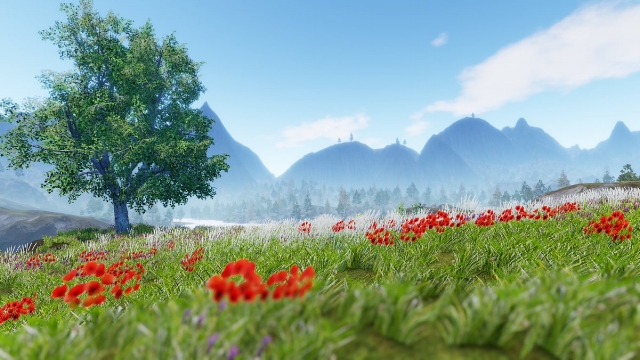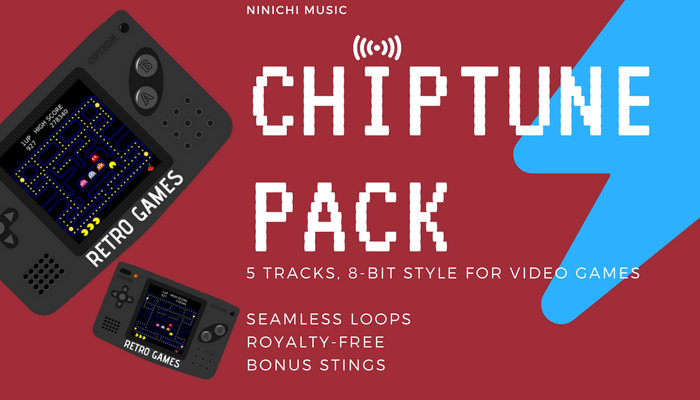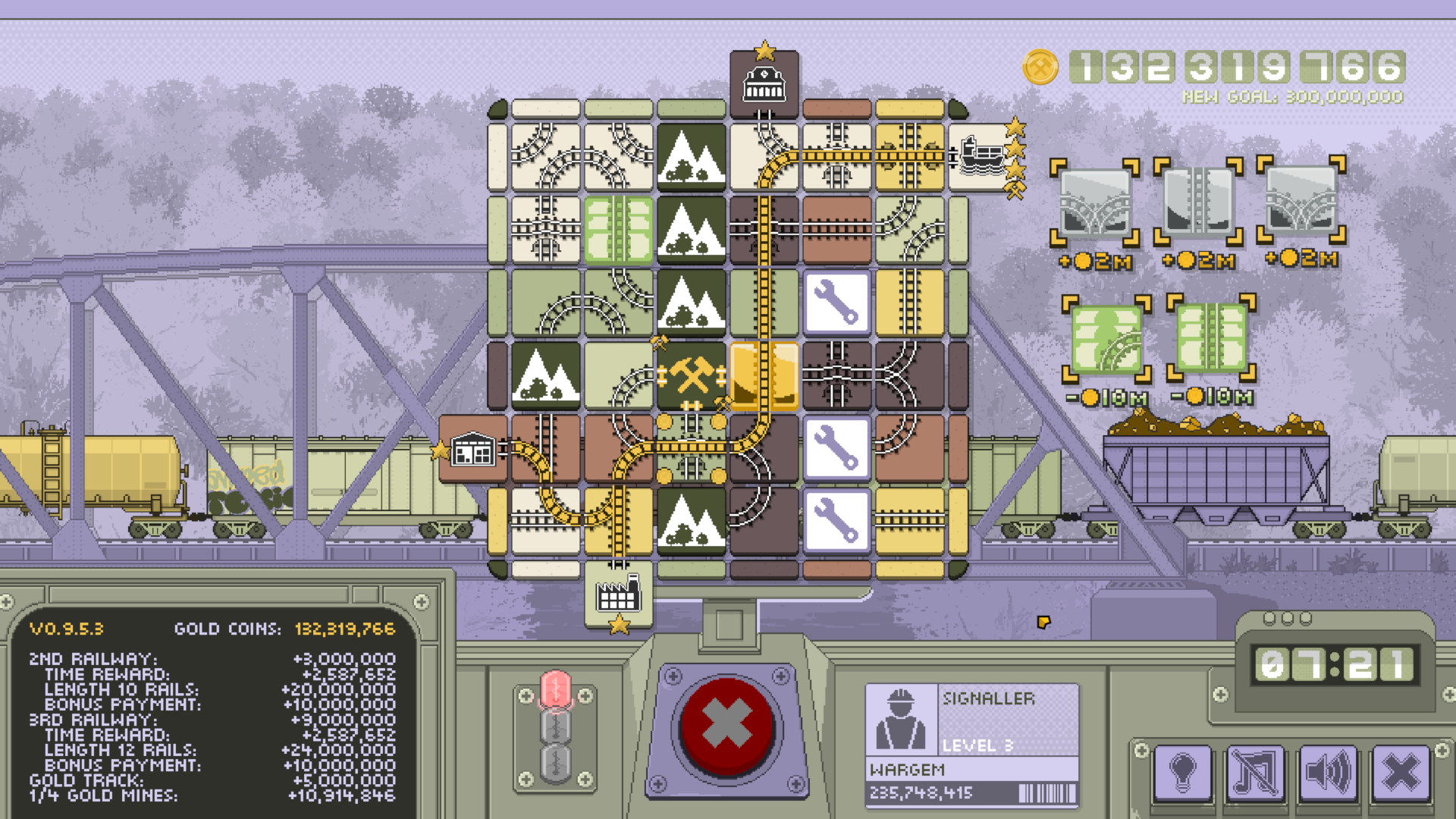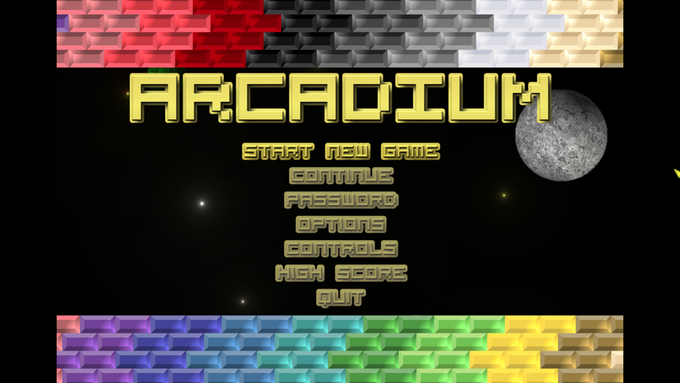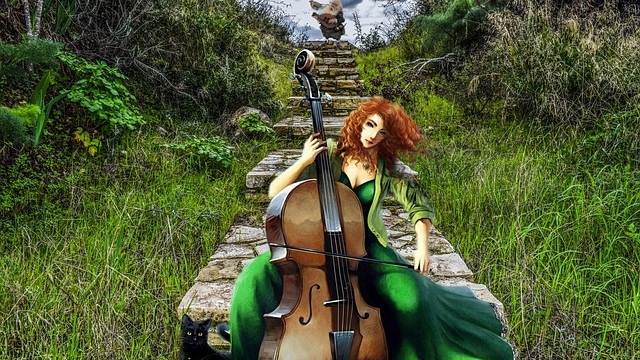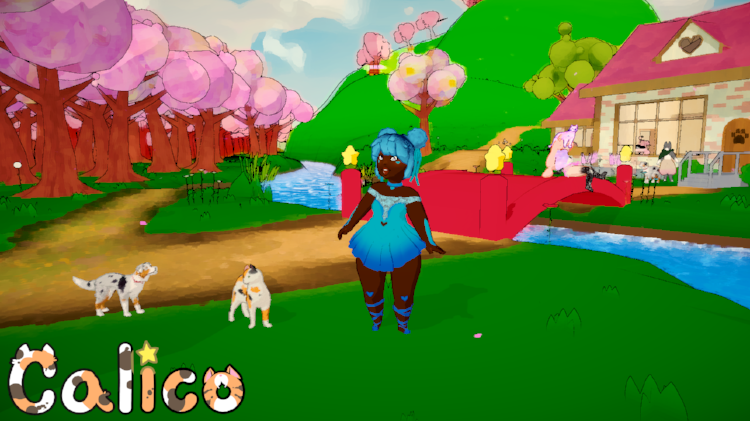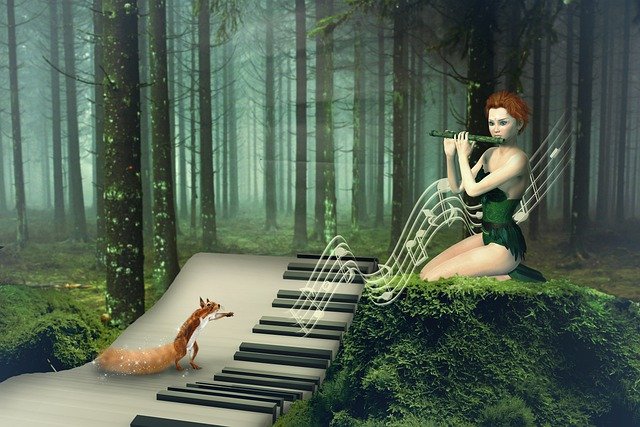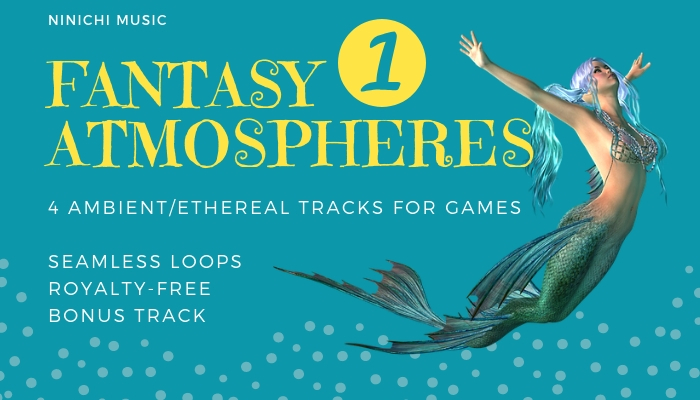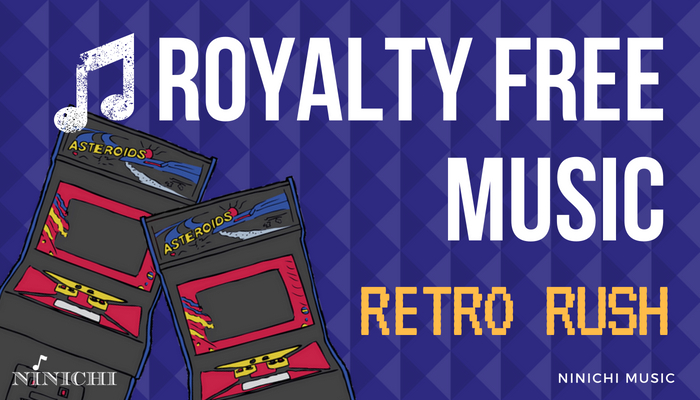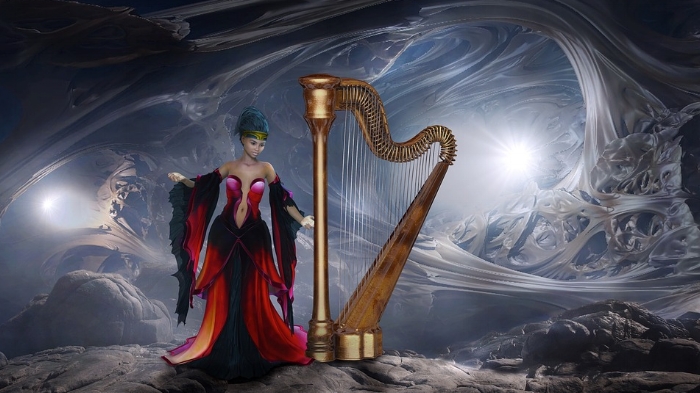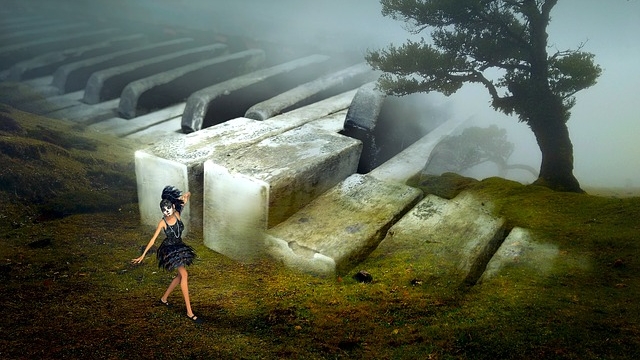If you’re thinking about hiring a composer for your project – whether it’s a game, a commercial, a film or anything else, it’s important to find the right person to work with. There are many composers around, however, unfortunately we are not all the same! As with other industries, there are good ones and bad ones and it’s important to know what to look out for when doing your due diligence and deciding who’s best for your project.
Read MoreMUSIC
Introducing the Game Music for Arty Swirly Colourful
This is the second of my 'insight' articles which aim to offer a bit more of a glimpse into how I created the music for different games. This one is called Arty Swirly Colourful and I was really excited when asked to work on the soundtrack for this game. Everything that I learnt and discovered about the game was quite inspiring and so I wanted the music to reflect the calm and beautiful world as well. See what you make of it...
What kind of game is Arty Swirly Colourful?
Arty Swirly Colourful is a beautiful exploratory game created by the talented game development team at Owl Sanctuary Studios. It’s a narrative driven game where you take on the character of a photographer sent into a stunning park – the ficticious Green Bay National Park, where you are tasked with taking photos. These photos are meant to recreate a series of paintings created in the park 100 years previously.
The game is set in a beautiful world populated with interesting wildlife, park rangers and other people to talk to, amazing surroundings and more. The music therefore is designed to reflect the gentle and calming nature of the surroundings as well as the emotional journey that one takes through the different areas of the park.
What is the music like?
The main mood for the music and for the game is that it is relaxing and soothing. The team at Owl Sanctuary Studios were very clear that they didn’t want any heavy electronic sounds and that they wanted a relaxed yet fun vibe. Playing the game and moving through the park is meant to be a chilling and gentle experience and so I’ve tried to make sure that the music supports this.
The first set of tracks composed for the game, are designed for the summer scenes. There are plans to build out the soundtrack further as the game develops and grows but for now we have focused on making the summer tracks fit the various settings and areas within the game.
What are the different game music tracks?
There are 5 tracks that I worked on:
Swirly Summertime – which is meant as a track for the daytime in summer, within the game. It’s therefore on the cheerier side yet still calming and soothing to listen to.
Early Sunrise – is meant to have that feel of awakening, discovery and a sense of wonder around what might be and what opportunities lies ahead
Summer Sunset – is at that beautiful shimmery time of day, when the light is it’s most beautiful. This is important for the photographer / player of the game and so hopefully the music reflects this sense of beauty.
Open Terrain – is meant to feel more airy than the daytime Swirly Summertime track. Who knows what you’ll find in the open areas! It’s a mystery but a fun one!
Forest Trees – is a track that would play when you’re in the forest terrain. Here, I was trying to blend a sense of magic, mystery and calming quietness.
Have a listen to them and see what you make of them! Hopefully you’ll find them just as relaxing as the Owl Sanctuary team do!
A few other things that could be interesting to share about how I worked on these with the Owl Sanctuary Studios team:
we communicated via a combination of emails and Discord
there was a good range of tracks to use as inspiration, ideas and as references
the team listened to each of the tracks to make sure that they all agreed on and liked them before signing each one off
About the author: Ninichi is a freelance indie game composer and music enthusiast. She has composed the soundtracks and music to several indie games. Contact her: to explore working with her on your game, film or media project.
Check out examples of Ninichi's game music compositions and soundtracks & read more articles like this on the Ninichi music blog.
Follow her @ninichimusic
Pros & Cons of Revenue Share Deals with Composers
Since I work with many indie developers as a game music composer, I’ve been asked a few times and invited to be involved with revenue share deals with new and up-and-coming indie games.
Read MoreIntroducing Shakey’s Escape Original Game Music Soundtrack
I ran a poll on through my Twitter account (@ninichimusic) asking what people might like to see more of on my blog. The top votes went for ‘Updates on my music’ and ‘Game music tips’. So, I’ve been thinking about what I can share about the music I’ve been working on and here is the first blog of hopefully a series of them, which offer a little bit more insight into the game music and other music projects I’ve had the privilege of working on, and how they’ve come together.
I’ve also done several interview style blogs, which have generally been received well and so although it may be a little strange interviewing myself – I’m going to use that kind of format to hopefully make these easy and fun to read! So here’s goes my first one!
What’s Shakey’s Escape about?
Shakey’s Escape is an adventure game about a cat, Shakey whose owner kicks him out of the house and from there on, your journey begins! You wander the streets coming across various puzzles, villains and much much more.
It’s a game developed by Smashing Pixels, also known as Doobly HQ. Earlier on last year I wrote an article taking a closer look at the game just as it was about to launch: Introducing the Game: Shakey’s Escape. It’s now available on Android and i0S and is free to download.
What’s the soundtrack like?
The original game music soundtrack consists of 10 tracks, which I would probably separate out into 3 different styles and/or moods:
1. Dreamy and relaxed
For the main menu track I tried to create a dreamy feeling. It’s when Shakey the cat, is snuggled up by a lovely, warm fireplace. In the music I tried to make it feel cosy and relaxed, and I think that the harp helps greatly in achieving this.
2. Light and sneaky
A lot of the game music that I composed for this game fall into this category. This is because the bulk of the game is when Shakey is exploring different places. There’s sneaking, discovering, playing, jumping, getting into trouble in lots of different ways – and I tried to reflect this in the music.
Since Shakey has just been kicked out by his original owner, everything that he sees and discovers through the various levels of the game is a new experience. So, there are elements of danger, mystery, uncertainty and cautiousness in the music too.
A few things that you may notice when you listen to the game music, is that a lot of the soundtrack is in a minor key and I’ve chosen to use a lot of pizzicato strings. To me, that was a way to create that sneaky, jumpy, cat-like feel.
3. Fights & Action
As one may expect, there are some fights in the game! Shakey’s adventures aren’t all just wandering around and discovering new things. There are villains that cross Shakey’s path and that must be dealt with!
So, for the levels and sections where there is more action taking place, the music becomes more intense to reflect this.
You may also notice that the music style changes as you get to the higher levels. It becomes more energetic, urgent sounding and retro. These are the tougher levels, which are much more difficult to get through and everything that Shakey is experience is really out of his comfort zone e.g. trying to fly a helicopter! The music, therefore, is more intense and faster to reflect this.
What did I enjoy most about working on this soundtrack?
Shakey’s Escape is the first original soundtrack that I’ve released and so I’m really honoured to have worked on it with Rob, the developer of the game.
It has been such a fun and rewarding journey to see the game develop and the music develop alongside it. I saw lots of clips of the game as I worked on the music for each level of the game. That really helped to give me an idea of what I needed to make the music work well with, and it was also just really stimulating and fun to see how the game was coming along.
By the time we finished working together, I couldn’t wait to see the full game released! It has been really well received so far and I just hope that the soundtrack does the game justice and gets just as well received as the game itself!
Is the soundtrack available and what’s next?
Yes indeed it is. Shakey’s Escape Original Game Music Soundtrack is available:
In terms of what’s next for me – well, I’d love to do more game music soundtracks as well as other music projects. So, if you need some help with your game music soundtrack, let me know (i.e. contact me here)! I’d also love to release more of the soundtracks I’ve done (check out my discography here) and sharing more blogs/information on them too, so watch this space!
About the author: Ninichi is a freelance composer and music enthusiast. She has composed the soundtracks and music to several indie games. Contact her: to explore working with her on your game, film or media project.
Check out examples of Ninichi's game music compositions and soundtracks & read more articles like this on the Ninichi music blog.
Follow her @ninichimusic
5 Reasons to hire a composer for your game or project
Do you need some music for your game, film or media project? You may be at that key stage of weighing up your options, contacting music composers and exploring music production libraries online. I've been composing for a while now and have supported many indie game developers and indie filmmakers with their projects - and so I understand some of the dilemmas that you may be tackling. If you want to chat about it, I'd be happy to hear from you. Feel free to email me at ninichimusic@gmail.com to explore working together and your options further.
Read More6 Ways to Pay a Game Music Composer
If you’re working on an indie game, there will come a time when you need to start thinking about the music for it. If you want to explore commissioning a composer or collaborating with one on your project, then it’s useful to understand what your options are when it comes to paying them.
I’m a game music composer and have worked on a variety of indie games (see my credits). I’ve enjoyed each and every project and love working with the indie developers and indie studios that I’ve connected up with. Whenever I speak to a new potential client– the same question arises around how much I charge and how to pay for the music.
So, hopefully this article will help you give you some ideas of what the options are and how, from my own experience and understanding, game music composers get paid…
To summarise the main options – you can pay a game music composer:
per hour
per minute
per track
per project
royalties / revenue share
Or some combination of the above.
1. Paying for time
Some composers have a price per hour. In some ways this is fair in that they are effectively billing you for the time they spend working on your music, however, different composers work at different speeds – as well as offering music of varying quality. Therefore, if you decide to work with someone based on their ‘per hour’ fee, make sure that you have some kind of understanding of how long they tend to spend on a piece of music – otherwise you could be receiving a much larger bill than you expect.
Composing music has various complexities to it and different composers will use different methods / processes / tools and techniques. You could be getting a bargain if their price per hour is low and they’re quick, but you’ll have to make a call on that.
2. Paying per minute
This is very common as an option and is often what tends to work well for game projects. This is usually because most music tracks in a game will be a minute, a minute and a half or two/three minutes long – on average. Some are longer – for example title tracks, or music in story-based games where the player might be stuck in an area or on a particular level for quite a long length of time and so a 4-5 minute track, could be an option but generally from my experience, most tracks have been between 1-3 minutes long, and by working based on this per minute rate, it seems quite fair for everyone.
The composer can judge or estimate roughly how long they would need to spend to create a minute worth of music – and they will base their price per minute on that, and you can decide how long you want your tracks to be based on your budget as well as what fits the game.
Feel free to browse through some of my game music tracks to see what they sound like, what their average length is and just to get some ideas!
3. Paying per track
This is best to do when you need quite long tracks otherwise working with a per minute rate could get quite costly for you. Having said that longer tracks do take more time and so when offering you a price, the composer is likely to take this into account.
If your game soundtrack requires many different tracks, then the composer is more likely to be happy to work with a per track rate. They will know that the project as a whole has multiple tracks that they can get their teeth into and you may find it easier to manage your budget and payments if you’re paying the same amount for each piece of work.
4. Agreeing a price for the whole project
If you have a large project and a large budget then this is a great method to use. You can agree upfront how much you want to spend on the music elements for your game (or project) and you can hire your composer there and then, to do all of it. That way everything is agreed and you’re sorted. You can have the peace of mind that you’ve hired a professional to deliver the game music and that you’ve agreed the pricing – so the budget for that is all sorted.
5. Royalties & 6. Revenue Share
Many indie game developers decide to build their teams and to work on this basis. If I’m honest, I’ve been invited on several occasions to work with this type of deal, but I have mostly turned them down.
Although some of these projects look really interesting, unfortunately – the reality of it is that working based on a payment model, which has no guarantees is just not appealing, especially when I have other paid projects to get on with. Also, I have a greater belief in the success and potential of a game or project when the person I’m working with (i.e. the indie developer / indie games studio or filmmaker), is willing to invest in it. To me that shows that they really believe in what they are developing and that they’re willing and keen to do what it takes to make it the best that it can be.
So there you have it! There are lots of options and opportunities for you to explore in terms of how you can work with a composer. It’s definitely worth asking them how they usually work, what they prefer and telling them what your own preferences are. By having that conversation you will also probably get a sense of what they’re like to work with and that should help you to decide if they’re someone you actually want to work with at all – or not!
If you want to explore working with me on your game or any other project, please contact me now and we can get talking!
About the author: Ninichi is a freelance composer and music enthusiast. She has composed the soundtracks and music to several indie games. Contact her: to explore working with her on your game, film or media project.
Check out examples of Ninichi's game music compositions and soundtracks & read more articles like this on the Ninichi music blog.
Follow her @ninichimusic
How to Work Well with a Game Music Composer
In order to ensure that you get the very best game music soundtrack for your game, you will need to brief your composer as well as you can. As a game music composer myself (learn more about me), I have experience in working with many different types of people and clients – from indie game developers, small game studios, filmmakers, podcasters, tv producers and more.
Read More5 Top Tips for Hiring a Game Music Composer First Time
If you’re working on your first game or perhaps you’ve done a few already but now you’re considering hiring a composer to work with you, this may feel like a big step! It could feel like a risk or a bit daunting to be bringing on someone new to the team, but it doesn’t have to be difficult or scary.
I’m a game music composer (see some of my music) and have worked with various indie game developers on their projects and have found it a very rewarding, fun and simple process. It could be this for you as well!
Read More